Are You Grinding Your Teeth At Night? Here Are The 12 Symptoms of Bruxism
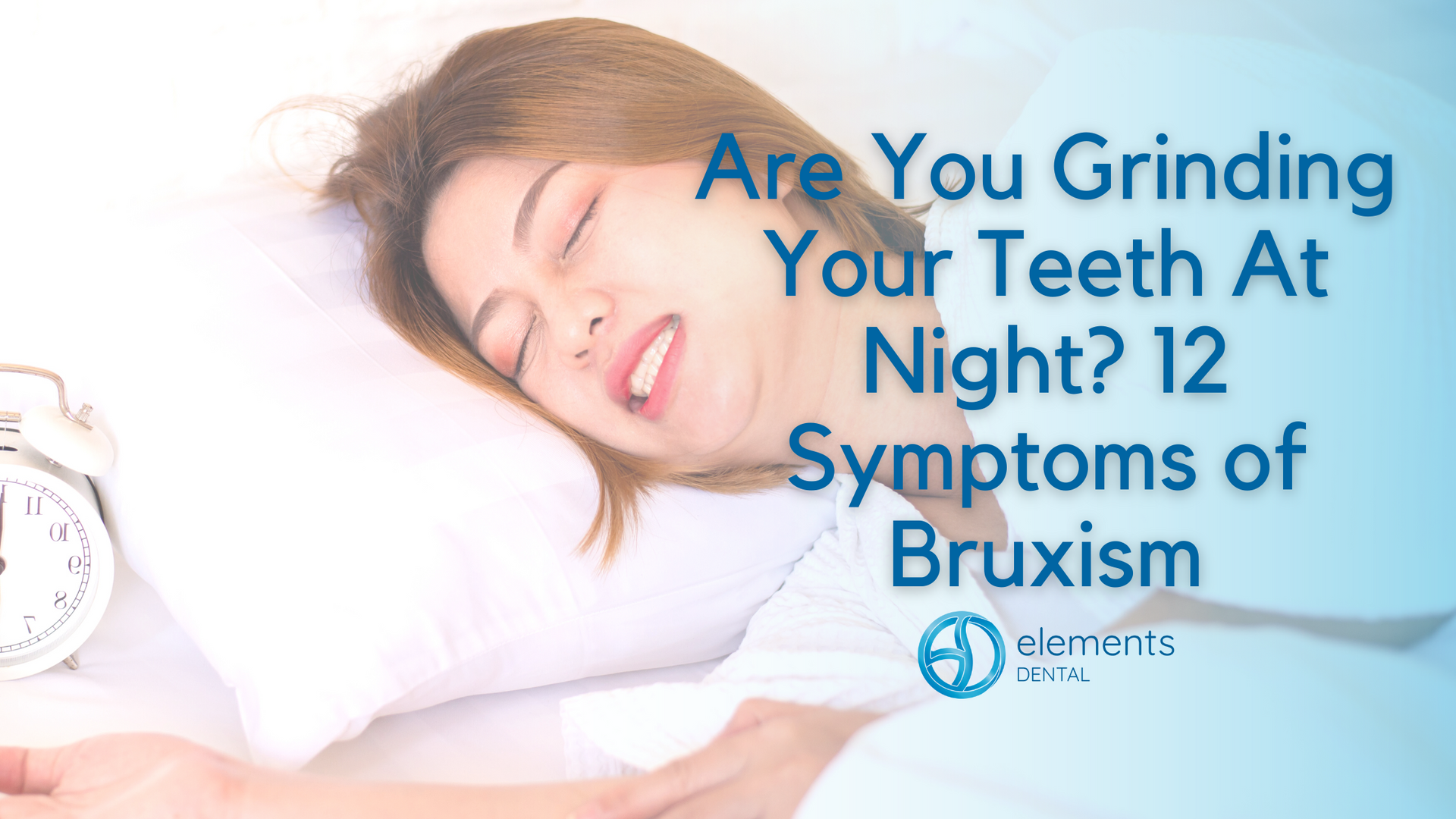
Many dental patients will occasionally grind their teeth during sleeping hours in what is medically referred to as bruxism. Although it generally does not tend to cause any harm, frequent grinding can result in your teeth being negatively impacted and create additional oral health concerns.
Stress and anxiety are both contributing factors that cause teeth grinding, but an abnormal bite or a missing or crooked tooth are more often responsible for bruxism. A sleep disorder, such as sleep apnea, can also be the root cause. At Elements Dental, our team has shared extensive information relating to bruxism, including symptoms, means of diagnosis, and effective solutions.
Symptoms of Bruxism
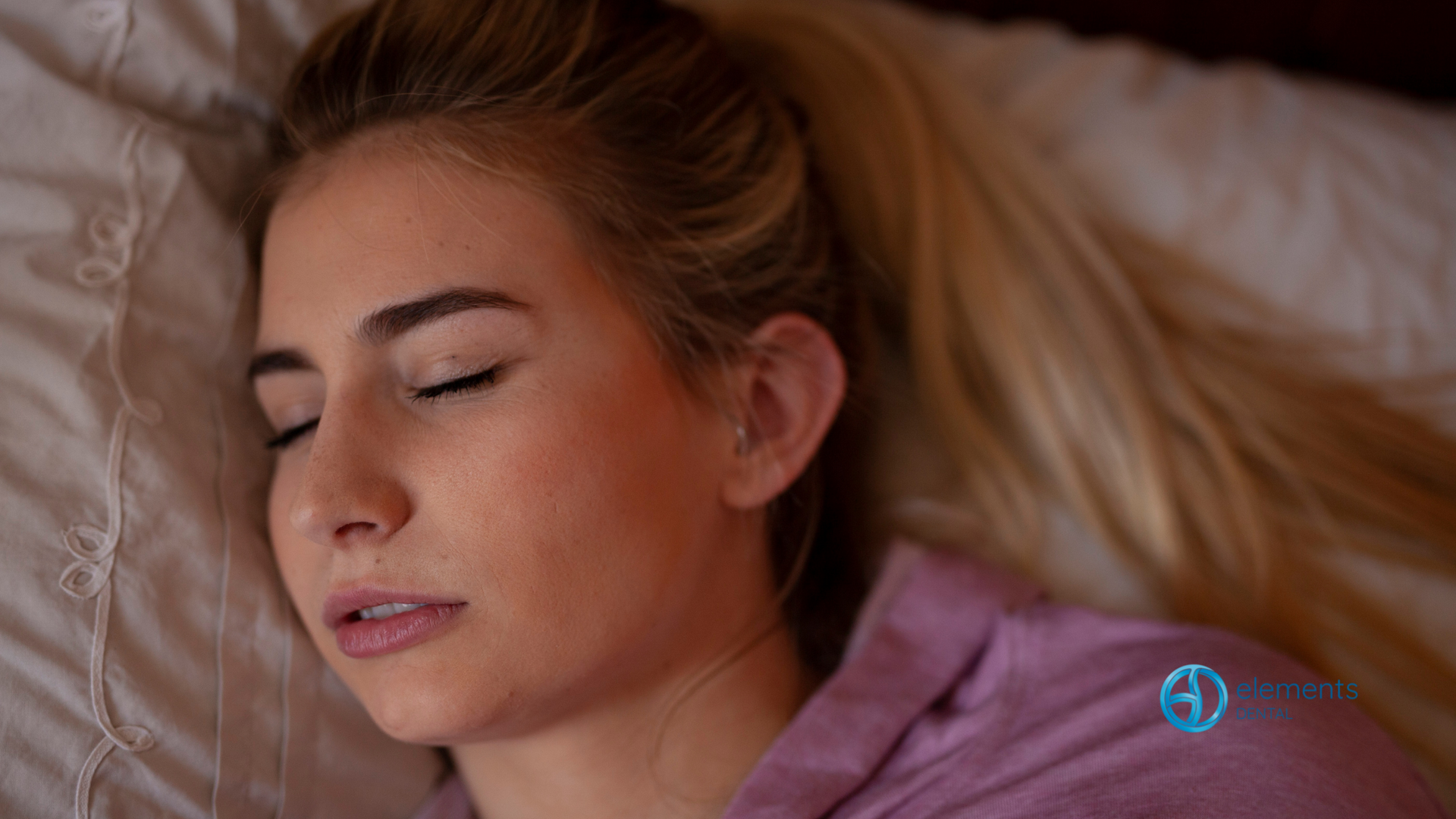
Not all patients will experience severe effects from sleep bruxism. Your symptoms and long-term ramifications are determined by the extent of the grinding, the alignment of your teeth, your diet, and whether you have other conditions that can impact the teeth. However, it is vital to know the common symptoms, which are:
- Jaw, neck, or face discomfort
- Chronic headaches
- Sensitive teeth
- Broken, chipped, or cracked teeth
- Waking up and a sense of restlessness
- Neck and shoulder pain
- Teeth grinding or clenching
- Teeth that are noticeably fractured, flattened, chipped, or loose
- Worn tooth enamel that exposes deeper layers of your tooth
- Tired or tight jaw muscles
- Discomfort that could resemble an earache
- Chewing marks on the inside of your cheek
How is it diagnosed?
During a routine dental exam in Sparwood, our dentists can check for any signs of bruxism. If common symptoms are evident, then one of our dentists will thoroughly look for potential alterations in your teeth or mouth throughout the next few visits, noting any progression and determining whether or not you require treatment. He or she will aim to identify the cause of the bruxism by asking questions about your general oral health, medications, daily habits, and sleeping patterns.
Common factors that can lead to bruxism

Stress: anxiety, anger, frustration, and stress can all have an influence on teeth grinding.
Age: teeth grinding is a normal habit among young children and it generally stops as you reach adulthood.
Personality type: if you have a personality that is aggressive, competitive, or super-active, your risk of bruxism can be greater.
Inconsistent sleeping patterns: many instances of teeth grinding seem to be connected with changing sleeping patterns or microarousals from sleep. Increases in brain and cardiovascular activity often precede teeth grinding, which could explain the associations that have been discovered between sleep bruxism and obstructive sleep apnea (OSA).
Medications and various substances: Tobacco, caffeinated beverages, alcohol, and recreational drugs can increase your risk of bruxism. And teeth grinding can also be an uncommon side effect stemming from psychiatric medications, like certain antidepressants.
A family condition: sleep bruxism is often seen in families, so your case of teeth grinding can come from a family history of it.
Other disorders: certain mental health and medical disorders can be linked to teeth grinding, including Parkinson's disease, epilepsy, dementia, gastroesophageal reflux disorder (GERD), night horrors, sleep-related disorders (sleep apnea), and attention-deficit disorder (ADHD).
Potential long-term consequences of night time teeth grinding
- Extensive harm to the teeth. Your teeth can become uncomfortable, eroded, and loose.
- Dental crowns, fillings, and implants can be significantly affected.
- Can increase the risk of experiencing issues with the joint that connects the lower jaw to the skull, also known as the temporomandibular joint (TMJ). Concerns relating to this joint can produce chewing difficulties, chronic jaw pain, popping or clicking sounds, locking of the jaw, and various other complications.
What is the solution?
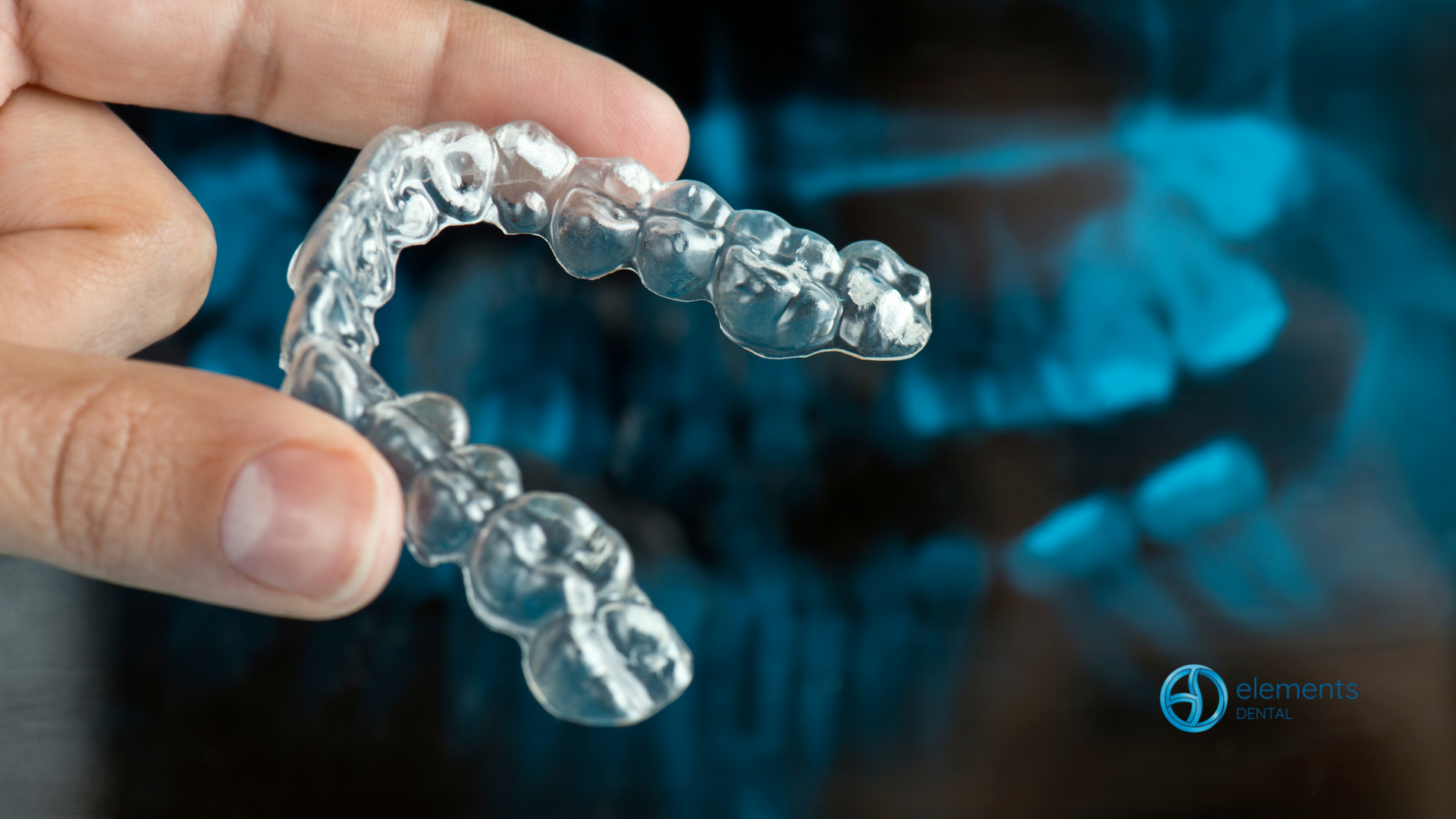
A mouth guard, customized within the dental practice, will be arranged by one of our dentists in order to protect your teeth from grinding as you sleep. For patients who are grinding their teeth because of stress, ask your doctor or dentist about some of the viable options that can reduce your stress (stress counselling, an exercise program, physical therapy sessions, or receiving a prescription for muscle relaxants).
Additional tips to reduce or stop teeth grinding
- Avoid or limit foods and drinks that contain caffeine, like colas, coffee, and chocolate.
- Avoid alcohol, as grinding usually intensifies following consumption.
- Avoid chewing on pencils, pens, or any other non-edible items. Also, do not chew gum too often because your jaw muscles will become accustomed to clenching, which will make it more likely that you will eventually grind your teeth.
- Teach yourself not to clench or grind your teeth. In the event that you clench or grind during the day, position the tip of your tongue between your teeth. This process trains your jaw muscles to relax.
- At night, relax your jaw muscles by holding a warm washcloth against your cheek in front of your earlobe.
- Adjust how you sleep, especially if there is a particular position that causes you to grind your teeth more.
Questions to ask our dentists about bruxism
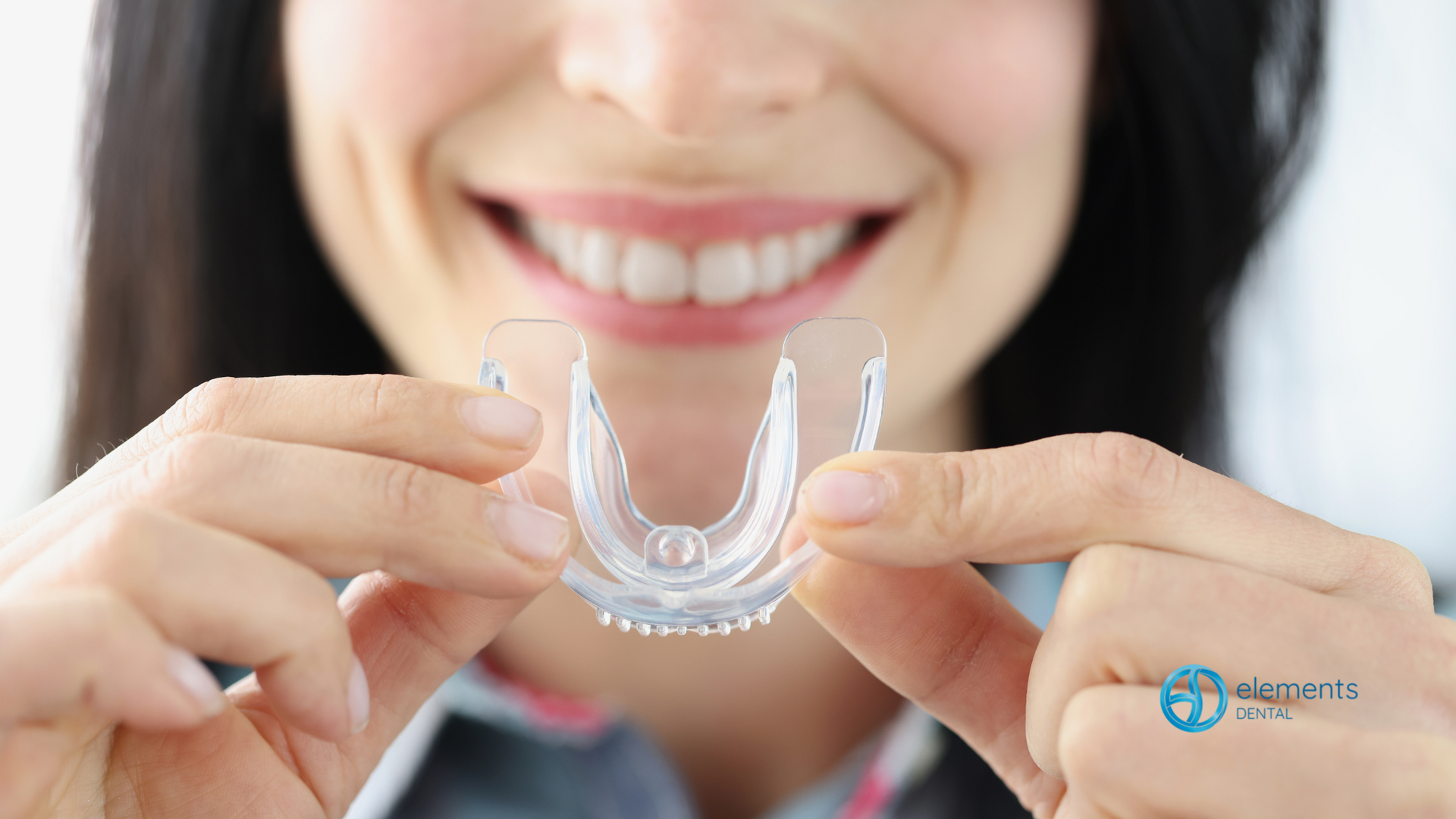
- Do I require a mouth guard?
- Do I need dental treatment to resolve the issue?
- Are there other treatments that can help stop teeth grinding?
- Will I need a sleep study to diagnose bruxism?
- What medications can be helpful?
- What long-term effects can result from teeth grinding?
Can children grind their teeth?
Tooth grinding can also affect children, with 15 to 33 percent of kids experiencing some form of bruxism. It occurs when their baby teeth come in and after their permanent teeth emerge. The majority of children will cease to grind their teeth once these two sets of teeth fully develop.
Children, for the most part, tend to grind their teeth when they sleep. While it remains uncertain as to why children experience bruxism, some considerations are: improperly aligned teeth, abnormal contact between upper and lower teeth, illnesses and other medical conditions (allergies, endocrine disorders, nutritional deficiencies), and psychological factors (anxiety or stress).
Similar to adults, teeth grinding within children can create jaw discomfort, headaches, worn down teeth, and temporomandibular joint disorders (TMD). Speak to our dentists immediately if your child expresses concern about tooth sensitivity or pain, or if you happen to notice that their teeth appear to be worn.
You can potentially help your child stop their teeth grinding habits by: decreasing their stress, particularly prior to bedtime; trying massages and stretching movements that will relax the muscles; ensuring their diet includes lots of water (dehydration might be associated with teeth grinding); and asking our dentists to keep an eye on their teeth for any symptoms.
Typically, intervention is unnecessary with children in the preschool age, but older children may require temporary crowns or a night guard to prevent the grinding.
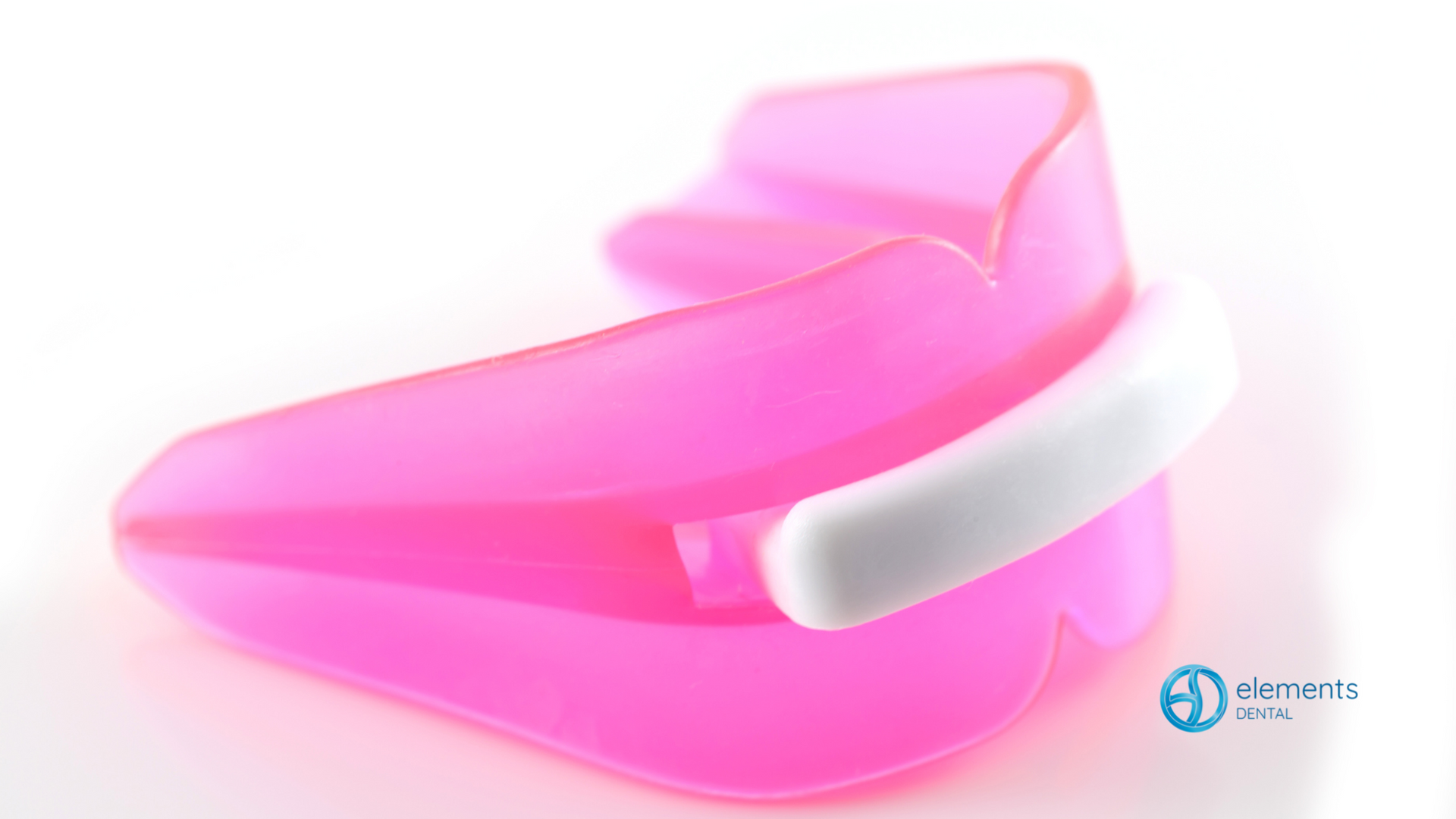
Bruxism has far too many possible consequences on your teeth and oral health to be neglected. If you suspect that you are suffering from tooth grinding during the day or throughout the night, visit Elements Dental on Oak Bay Ave in Victoria, British Columbia, alleviate your worries, and get back to enjoying a sound night's sleep.



